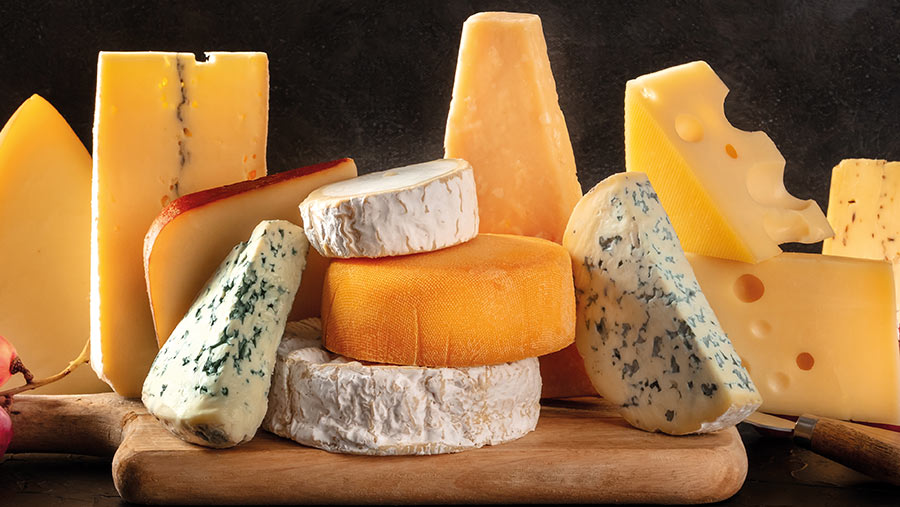Global Dairy Trade drops 7.4% due to weak wholesale demand
 © AdobeStock/Illya
© AdobeStock/Illya Wholesale dairy values dropped for the fourth consecutive time at the latest fortnightly Global Dairy Trade (GDT) on 15 August.
The GDT price index fell by 7.4% to average $2,875 (£2,252), with prices down for butter, skimmed milk powder and whole milk powder.
See also: Retail milk prices falling as dairy farmers make losses
Whole milk powder, which typically accounts for more than half of the total volume sold, had the largest decrease with a fall of 10.9%.
Cheddar sales bucked the wider trend and increased in value by 5.8% to average $4,127 (£3,234).
EU and UK wholesale markets were more stable during May and June; however, prices softened during July and into August.
Both of the UK milk market indicators, the actual milk price equivalent (Ampe) and milk for cheese value equivalent (MCVE), dropped during July.
Ampe stood at 29.7p/litre in July, which is 46% below the July 2022 level, while MCVE averaged 35.9p/litre, 32% below the same month last year.
Nick Holt-Martyn, principal consultant at The Dairy Group, said markets had “certainly softened a bit” and commodities had gone backwards after a period of relative stability.
Typically, the volumes of trade in Europe are very low this time of year due to holidays, and Mr Holt-Martyn said a real steer on the markets would only come in September.
“The retail price has held up much longer than the farmgate price and is sliding much slower, so it looks like someone in the supply chain is building their margin – and it’s more likely to be the retailers,” he said.
Rain in northern Europe has meant milk supply has kicked back in, and better weather should allow farmers to build up some decent forage before the autumn, he added.
UK daily milk deliveries are currently running 0.8% above this time last year.
Cost of production
Despite some variable costs such as feed and fertiliser returning to more normal levels, other costs such as labour and machinery have increased in recent years and are unlikely to fall.
Mr Holt-Martyn said: “The retailers and the supply chain have to recognise that farmers’ costs are irrevocably higher than they used to be, and they are going to have to pay up or they won’t get the food supplies they require.”
